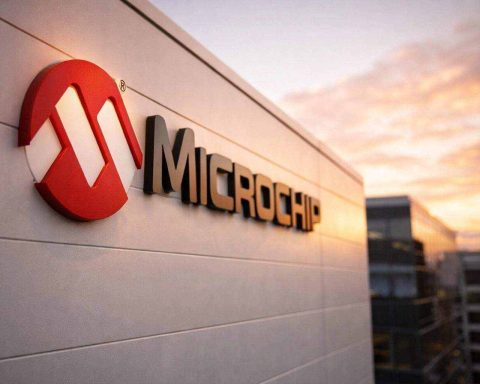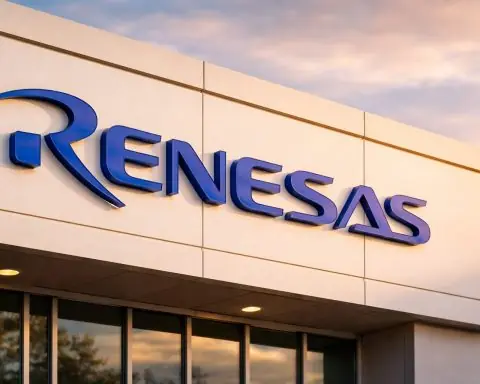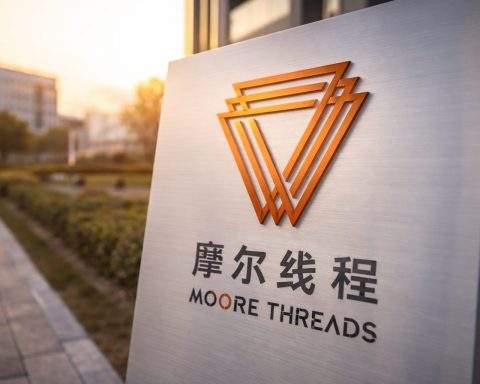- In July 2025, Meta AI expanded to include generative video editing powered by the MovieGen model, with one-click effects to change outfits, backgrounds, and lighting.
- WhatsApp introduced an AI concierge for business chats that handles customer inquiries and post-purchase recommendations, announced at Conversations on July 1, with testing in select markets including Mexico and plans for cloud-based voice and video calling.
- The Ray-Ban smart glasses’ companion app was rebranded as the Meta AI app, enabling hands-free AI queries and moment recording, following the June debut of Oakley Meta Glasses with built-in AI.
- In mid-July 2025, Meta and AWS announced a program selecting 30 startups to build on Llama models, offering six months of engineering support and $200,000 in AWS credits.
- Meta launched the Llama Impact Accelerator across Nigeria, Kenya, Senegal, and South Africa to fund socially impactful AI solutions with equity-free funding, mentorship, and training through late 2025.
- At Cannes Lions, Meta teased a next era of generative AI for advertisers to auto-generate ad variations (images, copy, short videos) and introduced the Opportunity Score to evaluate and optimize ad creative.
- Meta announced Meta Superintelligence Labs led by Alexandr Wang as Chief AI Officer, after investing $14.3 billion for a 49% stake in Scale AI and recruiting top researchers from OpenAI, Google DeepMind, and Anthropic.
- During Q2 2025 earnings, Meta cited AI infrastructure investments, noting over one million GPU cores in operation and plans for new AI supercomputing clusters to come online in 2026.
- Meta refused to sign the EU AI Code of Practice, a stance highlighted by Joel Kaplan, while also updating its European privacy policy to allow training on public Facebook/Instagram posts, effective in late June.
- A July 2025 disclosure revealed a security bug in the Meta AI chat app that could expose private conversations by altering a request’s ID, patched in January 2025 with a $10,000 bug bounty paid to the researcher.
July 2025 was a whirlwind month for Meta’s AI endeavors. The company rolled out innovative consumer AI tools, announced major partnerships and investments, notched research milestones, and navigated regulatory pushback and security scares. Below, we break down the biggest Meta AI news from July 2025 – from new AI assistants and Llama model initiatives to enterprise features, lab shakeups, and controversies – complete with insights from Meta leadership and industry experts.
AI Assistants and Consumer Tools Go Mainstream
Meta made strides in bringing AI directly to users. Early in the month, the company expanded Meta AI, its consumer assistant, by introducing generative video editing features available via the Meta AI mobile app and website about.fb.com. This tool lets anyone upload a short video and apply preset AI “prompts” to radically transform it – changing outfits, backgrounds, lighting, and more about.fb.com about.fb.com. Powered by Meta’s MovieGen research model, the feature essentially offers one-click special effects, allowing users to, for example, turn a rainy-day selfie video into a dreamy, soft-focus scene or reimagine themselves as a comic book character about.fb.com about.fb.com. Meta touted this as just “the first step” toward robust AI-generated video creation across its apps, hinting that later in the year users will be able to apply custom text prompts for even more control 1 .
Meta’s popular messaging and social platforms also saw AI-driven enhancements. WhatsApp announced an expansion of its “Business AI” assistant for companies chatting with customers about.fb.com. At the Conversations conference on July 1, Meta showcased an AI that can handle customer inquiries and make personalized product recommendations in WhatsApp threads, even following up with users post-purchase about.fb.com about.fb.com. This AI concierge aims to help businesses manage the flood of customer messages – a growing need as more commerce moves onto chat apps. Meta said it’s testing these AI agents in select markets (expanding soon in Mexico) and envisions them eventually handling voice calls as well about.fb.com about.fb.com. In a related update, WhatsApp’s business platform will soon support cloud-based voice and video calling, paving the way for AI-enabled voice support in the near future 2 .
On the AR front, Meta continued to integrate AI into its wearable devices. Following June’s debut of Oakley Meta Glasses – a high-performance smart eyewear line with built-in AI capabilities about.fb.com – Meta’s existing Ray-Ban smart glasses also benefited from software upgrades. The companion app for Ray-Ban glasses had been rebranded as the Meta AI app, underscoring Meta’s vision of ubiquitous AI assistance in everyday life. Users can ask the glasses’ AI for information or to record moments hands-free, illustrating Meta’s push to weave its AI assistant into both screens and “smart” accessories.
Enterprise AI and Llama Partnerships
For businesses and developers, July brought significant Meta AI initiatives. In mid-July, Meta and Amazon Web Services (AWS) announced a landmark partnership to accelerate generative AI startups built on Meta’s open-source Llama models europeanbusinessreview.com. Unveiled at AWS Summit New York, the program will select 30 promising startups and provide each with six months of hands-on engineering support plus $200,000 in AWS credits for cloud infrastructure europeanbusinessreview.com. The goal is to jump-start an ecosystem of enterprise applications using Llama 2, Meta’s large language model family, by lowering the barrier for startups to access computing power and expertise. “We have a long-standing relationship and partnership with Meta, and what we’re aiming to do here with the Llama collaboration is really empower founders to build transformative AI using Llama models,” said AWS’s startups head Jon Jones europeanbusinessreview.com. Meta’s VP of AI partnerships, Ash Jhaveri, echoed that startups are among tech’s most creative forces and predicted this cohort will “push boundaries… and shape the future of AI in bold and unexpected ways” europeanbusinessreview.com. The initiative – effectively a Llama startup accelerator – positions Meta to challenge proprietary AI platforms by seeding a developer community around its models.
Meta also sought to broaden Llama’s global reach. While applications opened for a Llama accelerator in the U.S., Meta in June had launched the Llama Impact Accelerator across four African nations (Nigeria, Kenya, Senegal, South Africa) to support socially impactful AI solutions about.fb.com about.fb.com. That program, which runs through late 2025, offers equity-free funding, mentorship and training to African startups leveraging Llama for local needs like agriculture, health, and education about.fb.com about.fb.com. “Africa is not just the future – it’s a present full of promise and potential,” noted Meta’s Africa public policy director Balkissa Idé Siddo, stressing that open-source AI can democratize innovation for diverse communities about.fb.com. Together, these efforts signal Meta doubling down on open AI ecosystems, positioning Llama as the go-to foundation model for entrepreneurs worldwide – and a counterweight to rivals like OpenAI’s closed models europeanbusinessreview.com 3 .
Meta’s bread-and-butter advertising business is likewise getting an AI infusion. At the Cannes Lions advertising festival (just days before July), the company teased a “next era of generative AI for advertisers,” promising to let brands produce personalized ad creative at scale bootcampdigital.com. In practical terms, Meta is building tools to auto-generate myriad ad variations – images, copy, even short videos – tailored to different audiences, all powered by its generative AI. This move foreshadows a future where marketing campaigns are dynamically optimized by AI, delivering unique, targeted content to each viewer. As Meta put it, AI is evolving from a back-end production aid into “a strategic differentiator” for agencies and marketers bootcampdigital.com. To help advertisers improve performance, Meta also rolled out an “Opportunity Score” system that uses AI to evaluate the quality of ad creative and suggest optimizations bootcampdigital.com. These updates emphasize that AI-driven personalization is set to be crucial in both commerce and marketing on Meta’s platforms.
Breakthroughs from Meta AI Research Labs
On the research front, Meta’s AI labs continued to chase ambitious milestones in July. Notably, the company is fixated on achieving what CEO Mark Zuckerberg terms “advanced machine intelligence” – AI that approaches or exceeds human-level capabilities. Just weeks earlier, Meta’s Fundamental AI Research (FAIR) team introduced V-JEPA 2, a “world model” AI that learns physics and common sense by training on video about.fb.com about.fb.com. V-JEPA 2 enables robots to predict outcomes in the physical world and “think before they act,” marking progress toward AI with a human-like intuition for how objects and environments behave about.fb.com about.fb.com. While that breakthrough came in June, its impact carried into July as researchers began evaluating V-JEPA 2 on new benchmarks that Meta released alongside the model about.fb.com about.fb.com. By open-sourcing such benchmarks and models, Meta signaled its ongoing commitment to share foundational AI tools with the community – a philosophy championed by Chief AI Scientist Yann LeCun.
LeCun himself made waves with candid commentary on the limitations of today’s AI and Meta’s roadmap. Speaking at a tech conference in Paris, LeCun argued that current large language models “basically cannot” truly understand physical reality, remember persistently, or plan complex actions – at least not beyond a “very superficial, approximate way” apnews.com apnews.com. He expressed skepticism about the industry’s LLM hype, instead emphasizing Meta’s focus on multimodal AI that can perceive and reason about the world like humans. “How do we build AI systems that understand the physical world… that can reason and plan?” he asked, suggesting those are the pillars of human-level intelligence that Meta aims for apnews.com. LeCun noted Meta’s vision “has always been to reach human intelligence and go beyond it,” and hinted that after years of fundamental research, the team now has “a clearer vision for how to accomplish this” apnews.com. His comments underscored Meta’s long-term bet on AI that learns through world models, simulation, and embodiment – complementing the language-centric approach of competitors.
July also saw Meta preparing to share more of its internal research. The company highlighted upcoming publications (e.g. on teaching language models to reason, scheduled for July 2025 release ai.meta.com) and continued integrating its innovations into products. For example, Meta’s work on audio-visual conversation agents (dubbed “Seamless Interaction”) – which allow AI avatars to exhibit lifelike speech and gestures – is feeding into future AR/VR experiences ai.meta.com. And Meta’s multimodal generative models (for text, image, audio, and 3D) have directly enabled consumer features like the aforementioned video editor about.fb.com. In short, Meta’s research labs are hitting their stride, with breakthroughs in world modeling and generative AI translating into real user-facing tools.
“Superintelligence” Ambitions and Talent Wars
Perhaps the most significant development was Meta’s all-out push to build a next-generation AI super-system – and the aggressive recruiting that came with it. In mid-July, Mark Zuckerberg formally announced Meta Superintelligence Labs, a new division dedicated to developing AI models “that supersede human capabilities” in reasoning and problem-solving windowscentral.com. To lead this effort, Meta went on a well-publicized hiring spree, poaching top AI scientists from rivals OpenAI, Google DeepMind, Anthropic, and more. The roster of new recruits reads like a who’s-who of AI talent: Alexandr Wang, the 25-year-old CEO of Scale AI, joined Meta as its Chief AI Officer to co-lead the superintelligence team after Meta’s whopping $14.3 billion investment in his startup (giving Meta a 49% stake in Scale) apnews.com apnews.com. Also joining were former GitHub CEO Nat Friedman and Safe AI co-founder Daniel Gross as co-leads alongside Wang【43†L194-202】 reuters.com, plus at least half a dozen senior researchers from OpenAI’s ranks – including experts who helped build GPT-4 and multimodal systems – and notable AI leads from Apple and Anthropic reuters.com 4 .
This hiring blitz is an unabashed bid to close the gap with OpenAI and Google in the “frontier model” race. An internal memo reviewed by Reuters frankly acknowledged that Meta’s own Llama 4 model had shown “poor performance” compared to competitors, spurring Zuckerberg to intensify the talent grab reuters.com reuters.com. The CEO has pledged “hundreds of billions of dollars” toward massive new AI data centers and computing infrastructure to support this effort reuters.com. In a candid conversation mid-month, Zuckerberg explained why top researchers are defecting to Meta’s AI lab: beyond the eye-popping compensation (rumored offers up to $100 million), “one of the biggest [reasons] is that you can have more leverage as a researcher. You have more compute,” he said windowscentral.com. At Meta, AI scientists get “the least number of people” on their teams and the most GPUs, Zuckerberg noted – meaning unparalleled access to cutting-edge hardware. Having “the most compute per researcher is definitely a strategic advantage… not just for doing the work but for attracting the best people,” he emphasized windowscentral.com. In other words, Meta is luring talent by effectively handing them a blank check for computing power, plus a startup-like environment within a tech giant.
The aggressive tactics have not gone unnoticed. OpenAI’s Chief Research Officer, Mark Chen, lamented the exodus of his colleagues to Meta by saying “someone has broken into our home and stolen something” – a pointed metaphor for Meta’s talent raid windowscentral.com. OpenAI’s CEO Sam Altman, for his part, called Meta’s recruiting spree “somewhat distasteful” and warned it could create cultural issues, even as he braced that the AI talent competition “will get crazier” still windowscentral.com. These reactions underscore that Meta has flipped the script – from being perceived as an AI underdog a year ago to now raiding the industry’s best minds. Meta’s bold bet is that assembling this “dream team” and giving them limitless resources will yield a breakthrough in “personal AI” or AGI that leapfrogs what competitors have achieved. Zuckerberg hinted that he’s “fully committed to doing what it takes for Meta to lead the way” in developing superhuman AI, calling it “the beginning of a new era for humanity” windowscentral.com. Time will tell if Meta’s massive investment and reorganization pay off, but July 2025 will be remembered as the month Meta openly declared war in the AI arena – backed by big money and big talent.
Partnerships, Investments and Strategic Moves
Beyond the AWS tie-up and Scale AI deal, Meta engaged in other strategic maneuvers in July. The company’s collaboration with Microsoft on Llama (dating back to Llama 2’s launch in 2023) continued, with Meta benefiting from distribution of its models via Azure and Windows. There were also reports of Meta eyeing further cloud partnerships to bolster its AI training capacity, as its internal demand for GPU clusters soars. In the public sector, Meta began providing some AI services to the U.S. government apnews.com, and it actively courted policymakers globally on the merits of open-source AI. The company’s stance is that freely available models like Llama spur innovation and economic growth – a narrative it pushed to differentiate itself from closed-model competitors.
Meta’s hefty AI spending also drew attention on Wall Street. In late July, during its Q2 2025 earnings, Meta reported significant increases in capital expenditures driven by AI infrastructure build-out. Zuckerberg told investors that the company now operates over a million GPU cores and is constructing new AI super-computing clusters slated to come online in 2026 investopedia.com. He framed these investments as essential to keep Meta at the cutting edge: “This will be a defining year for AI… over the coming years it will drive our core products and business,” Zuckerberg had written earlier reuters.com. Indeed, Meta’s CFO noted that AI advancements (recommendation algorithms, ad targeting improvements, etc.) were already boosting engagement and revenue across Facebook, Instagram, and their burgeoning Threads app. All told, July underscored that Meta is spending unprecedented sums on AI, viewing it as tantamount to long-term dominance in social technology.
Regulatory Battles and AI Controversies
No sweeping technological push comes without scrutiny, and Meta’s AI journey is no exception. In July, Meta butted heads with European regulators by refusing to sign the EU’s new voluntary Code of Practice on AI – a set of guidelines aimed at tamping down AI risks ahead of the EU’s AI Act. Meta’s Global Affairs head Joel Kaplan blasted the EU’s code as overreaching. “Europe is heading down the wrong path on AI,” Kaplan wrote, arguing the code “introduces a number of legal uncertainties for model developers, as well as measures which go far beyond the scope of the AI Act” europeanbusinessreview.com. He warned that such heavy-handed measures would “throttle the development and deployment of frontier AI models in Europe” and stunt the region’s competitiveness in the AI economy europeanbusinessreview.com. Meta’s stance put it at odds with some peers – OpenAI, for example, agreed to sign the EU code. But Meta sided with companies like Google, chipmaker ASML and Airbus in voicing concern that Europe’s approach could harm industry europeanbusinessreview.com. The tension highlights a growing policy debate: Meta is pushing its open-source, innovation-friendly narrative, while regulators seek greater oversight of powerful AI. How this resolves will shape Meta’s operations in critical markets. (Notably, Meta also updated its privacy policy in Europe to enable using public Facebook/Instagram posts for AI training – a move that took effect in late June and has raised questions about data consent ebu.ch 5 ).
On the home front, Meta worked to shore up user trust after an AI privacy scare. In mid-July, news surfaced of a now-fixed bug in the Meta AI chat app that could have allowed outsiders to peek into users’ private AI conversations malwarebytes.com. A security researcher discovered a flaw where altering an ID number in the app’s web traffic would return someone else’s chat history – even if that conversation was marked private. In essence, the app failed to validate that a request for a conversation was coming from the original author, meaning an attacker could increment conversation IDs and retrieve other people’s prompts and AI-generated replies malwarebytes.com malwarebytes.com. Meta had quietly patched this issue back in January 2025, and said it found no evidence of abuse malwarebytes.com. However, the revelation in July (for which the researcher earned a $10,000 bug bounty) was a wake-up call about AI data security. It followed a related incident where many Meta AI app users didn’t realize their shared conversations were visible in a public feed by default malwarebytes.com. Together, these incidents raised concerns about how “private” interactions with generative AI truly are on social platforms – an issue Meta will have to address as it encourages more users to engage with its AI assistants. Meta responded by reiterating safety guidelines (e.g. urging users not to share sensitive personal info with any AI malwarebytes.com), and it stressed that security and privacy features will be continuously improved as its AI products evolve.
Looking Ahead
July 2025 underscored that Meta is “all in” on AI across every facet of its business. In one month, the company rolled out consumer AI features to keep users engaged, empowered businesses with new AI tools, fueled open-source adoption via Llama partnerships, and repositioned itself at the forefront of AI research with massive investments and marquee hires. Mark Zuckerberg made clear he intends for Meta to set the pace in the next era of AI – even if that means ruffling feathers (be it regulators or rivals). As Meta’s chief scientist Yann LeCun put it, the company’s aim is nothing short of “tracing a path towards human-level AI… and beyond” apnews.com.
Of course, executing this vision will come with challenges. Meta must prove that its open-source strategy can coexist with strong monetization, that its AI models can be both widely used and responsibly governed, and that its huge spending will yield competitive breakthroughs. It also faces the task of integrating AI seamlessly into user experiences – making the technology feel like a helpful friend (as the new Meta AI assistant aspires to be) rather than a privacy threat or gimmick. The controversies of July show the tightrope Meta must walk between innovation and oversight.
Still, if one thing is evident from this month’s blitz of news: Meta sees AI as the key to its future. Executives are openly calling AI the next major platform, analogous to the mobile shift over a decade ago. With new AI-driven products on the horizon – from smarter glasses and metaverse avatars to ever-more conversational assistants – users and developers alike can expect Meta to launch more AI surprises in the months ahead. As the company leads with grand bets and bold claims, July 2025 will be remembered as a turning point when Meta’s AI ambitions truly kicked into high gear, setting the stage for an intensifying race to shape the intelligent platforms of tomorrow.
Sources:
- Meta Newsroom – “Centralized Campaigns, AI Support and More for Businesses on WhatsApp” (July 1, 2025) about.fb.com 6
- Meta Newsroom – “You Can Now Edit Videos With Meta AI” (June 11, 2025) about.fb.com 1
- Boot Camp Digital – “July 2025 Digital Marketing News” bootcampdigital.com 7
- European Business Review – “Meta and AWS Launch Program to Boost AI Startups Using Llama” (July 17, 2025) europeanbusinessreview.com 8
- About Meta (Newsroom EMEA) – “Accelerating Open-Source Innovation Across Sub-Saharan Africa” (June 10, 2025) about.fb.com 9
- Associated Press – “Meta invests $14.3B in AI firm Scale and recruits its CEO for ‘superintelligence’ team” apnews.com 10
- Reuters – “Zuckerberg’s Meta Superintelligence Labs poaches top AI talent in Silicon Valley” (July 17, 2025) reuters.com 11
- Windows Central – “Mark Zuckerberg says OpenAI and Anthropic researchers are flocking to Meta’s AI camp…” (July 15, 2025) windowscentral.com 12
- European Business Review – “Meta Refuses to Sign EU AI Code, Cites Industry Harm” (July 21, 2025) europeanbusinessreview.com 13
- Malwarebytes Labs – “Meta AI chatbot bug could have allowed anyone to see private conversations” (July 17, 2025) malwarebytes.com 14






